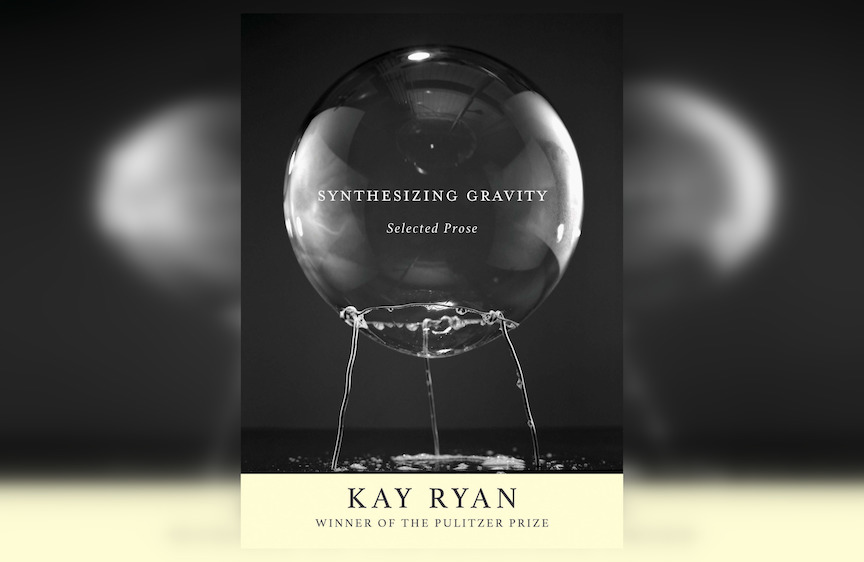Translated from the Portuguese by Lívia Lakomy
—
1.
Learning about football through poetry
Now that the 2014 World Cup is over, it seems the Americans are finally joining the rest of the world (except the Germans, who are too busy celebrating to care about anyone else, as is their right) in licking their wounds and counting the days until 2018. For my country of Brazil, this Cup has been particularly disastrous, but we are perhaps better trained in dealing with the aftermath of disaster in football. Yes, for as many victories the Seleção has achieved, there are at least twice as many overwhelming defeats. So let us grieve together all around the world with the help of Brazil’s greatest poet, Carlos Drummond de Andrade (1902-1987). Only in a country where a sport has become all but an official religion can we have such a genius pouring his heart in such a heartfelt silly way.
Drummond wrote this particular piece over thirty years ago, during the 1974 World Cup that took place in Western Germany. Then, as now, Brazil finished in a disappointing fourth place. Then, as now, the country was faced with picking up the pieces of a crushing defeat and moving on. All of us (except the Germans, those lucky few) can learn together from the poet.
“Sermon on the Plains (not meant to be listened to)”
by Carlos Drummond de Andrade (Jornal do Brasil – June 18th, 1974)
Blessed are those who do not understand—nor wish to understand—football, for theirs is the kingdom of the peace of mind.
Blessed are those who, understanding football, do not expose themselves to the risk of watching the matches, for they do not return home disappointed or in cardiac arrest.
Blessed are those who do not support a team, for they do not suffer from January to January with only little doses of joy and a title as their only balm, or not even that.
Blessed are those who do not pick the teams, for they shall not have their mothers offended, their sexuality questioned, and their physical integrity threatened while trying to leave the stadium.
Blessed are those who are not picked for a team, for they shall escape booing, the throwing of projectiles, broken bones, and even the precariousness of fleeting glory.
Blessed are those who do not cover football matches, for they are not called on to explain the unexplainable and rationalize madness.
Blessed are those photographers who have gone from covering sports to covering fashion, for they do not waste unending periods of time so that they might capture the lightning of a goal.
Blessed are those who only make—but don’t use—balls and cleats, for they aren’t hit in the face by the first and in the groin by the second, like the players and the occasional assistants on pick-up games.
Blessed are those who couldn’t buy a color TV in time to follow the World Cup, as they, by watching the games on your neighbors’ TV set, were able to suffer without having to spend so much money for their misery.
Blessed are the deaf, untouched by the bang of the victory bombs that turn other people deaf, or by the insistent rattle of the announcers in need of exorcism.
Blessed are those who do not live in streets—or thereabouts—where the cheering is institutionalized, for they are hit with only fifty percent of the build up and celebratory noise.
Blesse are the blind, for they are spared the torture of watching the live or televised spectacle of the closed-marking that paralyzes champions, or of that unpredictable play that destroys any idea of invincibility.
Blessed are those who were born, lived and died before 1863, when the rules of football were codified, for they have escaped the torments of cheering—including heart attacks inflicted by both the victory and the defeat of the beloved team.
Blessed are those who, between the real ball and the button used to play table football, choose the latter, for they are more easily consoled by losing the button on their shirts than the elusive beast of victory.
Blessed are those who, when it’s time for an international match, manage to tune the radio to a sonata by Albioni, for theirs is the kingdom of heaven.
Blessed are those who do not mix up the defeat of Laponia by Tierra del Fuego with the national victory of Tierra del Fuego over Laponia, for they are not visited by the feelings of war.
Blessed are those who, after hearing this sermon, may apply all of their childish fervor on their mature breasts to wish victory to the Brazilian team in this and in all future World Cups, just as this disenchanted sermon maker—still a supporter—, for to hell with reason when football has taken over your heart.
—
2.
Rodrigues’s Country of Football
Nelson Rodrigues (1912-1980) is—given its due proportions—the closest Brazil has gotten to having a Shakespeare. Though he better known for his work for the theater and fiction, he was also a key figure in the development of Brazilian journalism. As part of his nonfiction work, Rodrigues became the greatest sportswriter in the country. He helped turn Brazil into the “country of football” and coined phrases that are used to this day, such as “the replay is wrong” and “in the Maracanã stadium, you should boo even the minute of silence”. In this particular piece, he introduces his view that football is about everything imaginably possible – except the actual ball. For those who complain that the Seleção’s “beautiful game” has all but vanished from view these days, here is a reminder that football has always been a contact sport and the team has long known how to play the ugly game as well.
“Divine Delinquency” by Nelson Rodrigues
(O Globo, November 18th, 1963)
Friends, you remember that shameful defeat of 1950. It was a humiliation even worse than the massacre of Canudos. The Uruguayan Obdulio Varela beat our team just by screaming and pointing fingers. Don’t tell me the Seleção is nothing more than a team. It is. If a team walks into the field under the name “Brazil” and having as a background our national anthem, then it’s as if the entire nation were there, wearing shorts and cleats, kicking and being kicked.
Very well. After this biblical event of 1950, we started hissing on every corner, on every barstool on the continent, our final judgment on ourselves: “Brazilian are good as ball players, but wimpy as men”. Yes, that’s what was said of us with ferocious sarcasm by the stars of Argentina and Uruguay.
But then came that famous South American Championship of 1959, the game Brasil vs Uruguay. Suddenly, all hell broke loose. Even the chairs got into the fight. It was something out of Walter Scott. Even our own Chinesinho, looking like a Velasquez dwarf, gave and took some punches. It was beautiful. It was beautiful when Didi took some steps back, ran and jumped—for a fleeting moment he turned light, elastic, he was an acrobat. And then the bottom of his cleats graced the face of the enemy. Once the war ended and the game continued, we showed them how to play. Well, there is a clear connection between the passivity of 1950 and the aggressiveness of that South American Championship. These things are linked and justify each other.
A dear and brilliant friend told me yesterday: “football is about the ball”, but there is no more mistaken, inexact, utopic and unrealistic opinion. My friend deflates football as if it were a tire. Let me reiterate: this idea takes away from football everything mysterious and pathetic about it. The most sordid of pick-up games has in it a complexity of Shakespearean proportions. At times you can even see shadows of the supernatural on well—or ill—kicked corner. I would also add in scolding my friend: in football, the worst type of blindness is in only seeing the ball.
[…]
If the game were all about the ball, very well. But there is a human being behind the ball and more: the ball is but a paltry, a minuscule, a ridiculous detail. What we look for in football is drama, tragedy, horror, compassion.
—
3.
Football Stars
Ruy Castro (1948) is a specimen from a rare breed: the popular intellectual. His words can be found in his newspaper column, his face can be seen with some frequency on TV and every few years the Brazil is graced with another one of his books. His work as a biographer has resulted in at least two masterpieces: a biography of music and movie star Carmen Miranda, yet to be translated into English, and Garrincha: The Triumph and Tragedy of Brazil’s Forgotten Footballing Hero, which has not only been translated (by Andrew Downie) but is also available as an e-book and is a must read for anyone interested in football, Brazil, nonfiction or just a good story. His short tale of player Heleno is a taste of how the early days of Brazilian football produced great and flawed heroes whose lives still echo today.
“Heleno: The Star Barely Blinked” by Ruy Castro
Wherever he went, Heleno de Freitas (1920-1959) left a trail of Carnaval behind him. His dribbles and goals while sporting the Botafogo jersey were just one of the reasons for that—he was the great idol of the “lone star” team in its pre-Garrincha days. Later, he would also be known by the scent of poppers that enfolded him, and not only during the three days of the Carnaval holiday. He was addicted to ether, a fact that would help bring about his early end.
Heleno’s life was a moveable feast only sparingly interrupted by moments of clarity. Only much later it would be discovered that this party was fueled by syphilis, the madness that would explain his split personality: on the field he decimated both adversaries and teammates with his aim for perfectionism. He would humiliate friend and foe alike. Away from the field, he was an irresistible flirt, making the social rounds in 1940’s Rio and sweeping women off their feet.
He was both pathetic and full of inner drama, traits that would have likely followed him to any other activity. Destiny decided, however, that this activity would be football—and what destiny and what football! In a country were most players were short, toothless, and bowed legged, Heleno was a movie star in shorts and cleats. His gelled hair, his well cut suits, his open tab at Vogue nightclub and the entourage of beautiful women surrounding him made him more than a sporting star. From the beach to the field, from his Copacabana nights to his last days in a hospice in Barbacena, from his many friends to abandonment; he managed to concentrate his shine in 39 short years, 305 games and extraordinary 251 goals—almost one per match.
I’m sure you remember what you learned in science class. Some stars still shine even after death—it’s the time it takes for their light to reach us. This might well have been the case with Heleno. Unbeknownst to all, at any given point in his sparkling career, the star was no longer there and we were left only with the travelling light.
—
Livia Lakomy is a journalist and writer from Brazil, where she learned to appreciate the “beautiful game” of football/soccer almost as if by osmosis. Still, she must confess to only really caring about it during the World Cup. She currently lives in New York, where she is earning an MFA in Creative Nonfiction at Columbia University.




